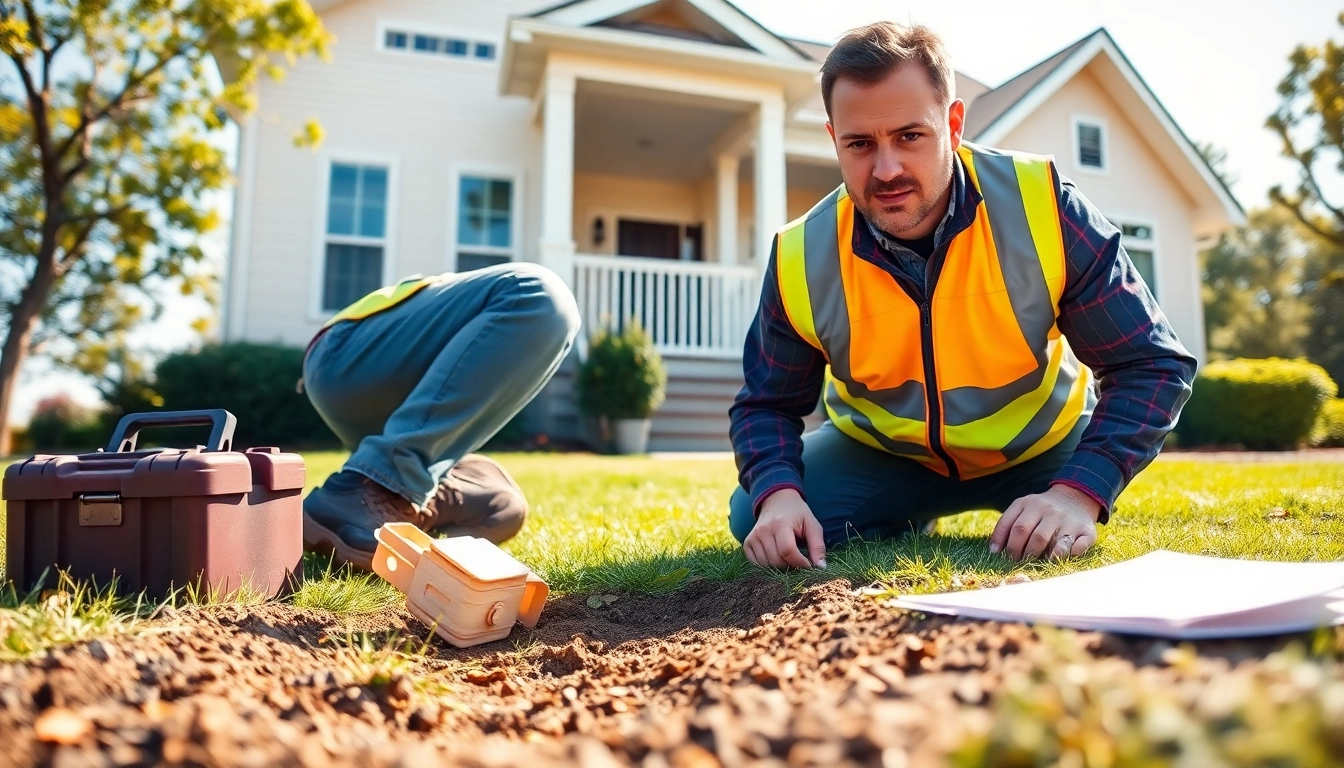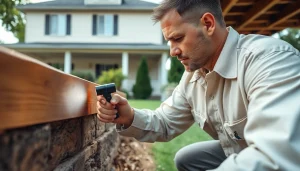Comprehensive Guide to Termite Inspections: What Homeowners Should Know
Understanding Termite Inspections
What is a Termite Inspection?
A termite inspection is a thorough evaluation of a property conducted by a trained professional to identify any signs of termite activity or damage. The inspector examines various areas of the home, paying close attention to structural components such as beams, walls, and foundations. The primary goal is to detect termites early, preventing extensive damage that could result in costly repairs.
Importance of Regular Termite Inspections
Regular termite inspections are vital for maintaining the integrity of your home. Termites can cause significant structural damage, often without any noticeable signs until it’s too late. A proactive approach to pest control, which includes scheduled inspections, can save homeowners time, stress, and money. The National Pest Management Association recommends annual inspections to effectively manage risks associated with termite infestation.
Signs Indicating the Need for an Inspection
Several warning signs can indicate a termite infestation, prompting the need for an immediate inspection. These signs include:
- Swarmers or discarded wings near windows and doors
- Tubelike structures made of mud on walls or surfaces
- Hollowed or damaged wood, often producing a crunchy sound when tapped
- Frass, which resembles wood shavings or sawdust near wood structures
- Unexplained creaking or soft spots in floors and walls
If you notice any of these signs, it’s crucial to schedule a professional termite inspections promptly.
The Process of a Termite Inspection
What Inspectors Look For
During a termite inspection, professionals look for signs of live termites, dead termites, and any structural damage caused by the pests. Inspectors are trained to identify different types of termites, including subterranean termites, drywood termites, and dampwood termites. Each type can cause varying levels of damage depending on their nesting habits and food sources.
The Areas Typically Inspected
Termite inspectors cover both interior and exterior areas of a home. Key areas include:
- Basements and crawlspaces, which are prone to moisture and provide a conducive environment for termites
- Attics, where inspectors check for signs of infestation in wooden frames and insulation
- Exterior walls, looking for mud tubes and entry points
- Foundation areas, ensuring there’s no direct wood-to-soil contact
Tools Used by Professionals During Inspections
Inspectors use a variety of tools to effectively identify and analyze termite activity. Common tools include:
- Moisture Meters: To gauge wood and moisture levels, which can attract termites.
- Infrared Cameras: Used to detect heat emitted by termites hidden within walls and ceilings.
- Inspection Mirrors: To see into tight or dark spaces that are difficult to access.
- Knocking Tools: For testing wood to identify hollow areas which may indicate termite damage.
Cost of Termite Inspections
Average Pricing Breakdown
The cost of termite inspections can vary depending on several factors, including the size of the property and its location. Generally, homeowners can expect to pay between $75 and $325 for an inspection, with an average cost around $100. Some inspection services might include a comprehensive report and treatment options as part of the package.
Factors Influencing Inspection Costs
Several variables can affect the overall cost of termite inspections, including:
- Property Size: Larger homes require more time and effort to inspect.
- Accessibility: Properties with crawl spaces or difficult-to-access areas may incur additional fees.
- Region: Prices can vary significantly based on geographic location and demand.
- Additional Services: Some companies may offer follow-up treatments or preventative plans that can increase the initial inspection cost.
Variations in Costs by Region
Inspection costs often differ based on regional market rates. For instance, urban areas may experience higher prices due to increased demand, while rural areas may have more competitive pricing. Understanding local market trends is essential for comparing services effectively.
Frequently Asked Questions on Termite Inspections
How Often Should Termite Inspections Be Done?
It is recommended that homeowners schedule termite inspections at least once a year. However, if you live in an area prone to termite infestations or have a history of past termite problems, more frequent inspections may be warranted. Regular evaluations help detect issues early, reducing the risk of extensive damage.
Do I Need a Termite Inspection When Buying a Home?
Yes, having a termite inspection performed is often essential when purchasing a home. Many lenders require a termite clearance as part of the loan process. A thorough inspection can identify potential issues that could affect the value of the property, ensuring buyers make informed decisions.
Can I Perform My Own Termite Inspection?
While homeowners can look for obvious signs of termites, such as mud tubes or wood damage, a professional inspection is more comprehensive. Professionals are trained to detect subtle signs of infestation and possess the necessary tools and expertise to assess potential damage accurately. It is advisable to schedule regular inspections with certified pest control experts.
Choosing the Right Termite Inspection Service
Qualities to Look for in Inspectors
When selecting a termite inspection service, consider the following qualities:
- Certification and Experience: Ensure inspectors are licensed and have experience in termite inspections.
- Customer Reviews: Look for positive feedback from past clients, which can provide insights into the company’s reliability and effectiveness.
- Comprehensive Reports: A good inspector should provide a detailed report outlining findings and recommendations.
- Follow-Up Services: Consider whether the company offers continued monitoring or treatment plans after the inspection.
Comparing Local Inspection Services
Take the time to compare multiple inspection services in your area. Assess their pricing structure, the thoroughness of inspections, and customer service. Request quotes from at least three different companies to ensure you are getting a fair price and adequate service. It’s also beneficial to inquire about warranties or guarantees that may be offered in connection with their services.
Reading and Understanding Inspection Reports
A well-written inspection report can provide valuable information. When reviewing the report, look for:
- A clear description of inspection areas
- Specific signs of termite activity or damage
- Recommendations for treatment or preventive measures
- Photographs documenting the findings, if applicable
Understanding the report will empower you to make informed decisions regarding treatment and prevention strategies.



